One of the most widely used free media players available is VLC Media Player. It is lightweight, cross-platform, and compatible with nearly all video and audio formats. However, despite its adaptability, customers occasionally encounter the annoying issue of “VLC Media Player no sound”.
Imagine this: you open a movie, the video plays smoothly, but there’s complete silence. You check your volume—it’s fine. You plug in your headphones—still nothing. At this point, many people think their file is broken or their computer’s audio system is down. The good news is that the issue usually comes from something simple inside VLC or the video file itself. In this guide, we’ll walk through the most common reasons why VLC media player has no sound and how you can solve them—step by step. We’ll also cover what to do if the issue isn’t with VLC at all, but with the video file itself. Let’s get your audio back!
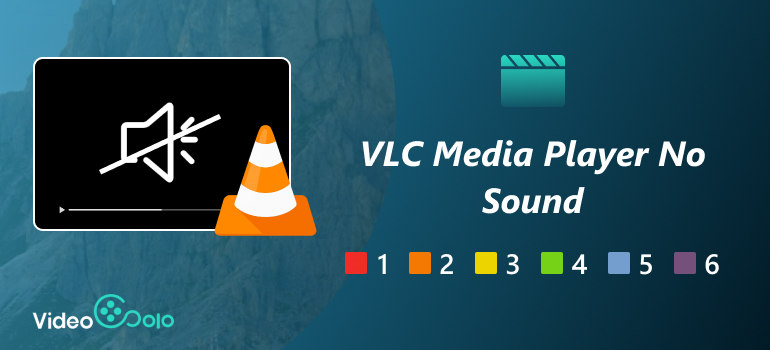
The Regular Situation of No Sound with VLC Media Player You May Encounter
It's useful to know what often causes sound issues in VLC before making any repairs. These categories comprise the majority of cases:
• Muted or lowered VLC audio settings
VLC's volume control is independent of your system's volume control. Occasionally, it is inadvertently muffled or set too low.
• System sound issues
Your computer's system sound may be muted, incorrectly set, or sent to the incorrect output device (such as external speakers rather than headphones) even if VLC is operating without any issues.
• Audio track disabled
You may select several audio tracks for videos using VLC. You won't hear anything if it's on the incorrect track or set to "disable."
• Codec or file compatibility issues
If some audio codecs are unsupported or damaged, they could not play properly.
• Outdated VLC versionVLC
Old versions of VLC sometimes have bugs that cause playback glitches, including missing sound
• Corrupted video file
The audio might not load or play correctly if the video file itself is corrupted.
Troubleshooting will go much more quickly if you know which scenario applies to you.
How to Fix VLC Media Player No Sound
Now that we know the usual suspects, let’s go step by step through solutions dealing with VLC Media Player with no sound.
Method 1: Turn on Audio/Unmute Audio on VLC
Unmuting the audio in VLC is the first step in resolving VLC No Sound. The following steps will help you finish this easy process:
Step 1. Open VLC Media Player and navigate to the Audio section;
Step 2. Select the "Mute" option and click on it;
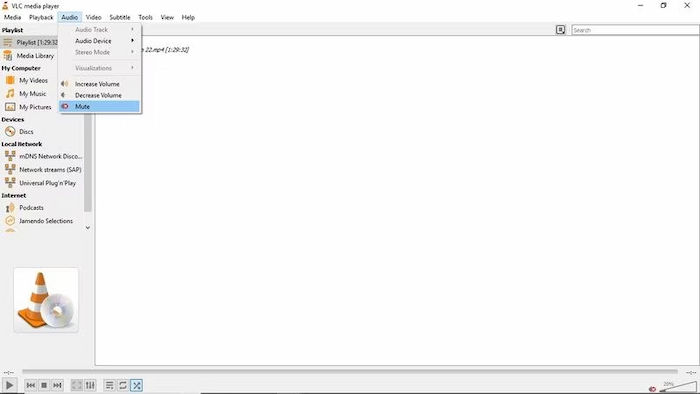
Step 3. Select the Tools tab and then select "Preferences."
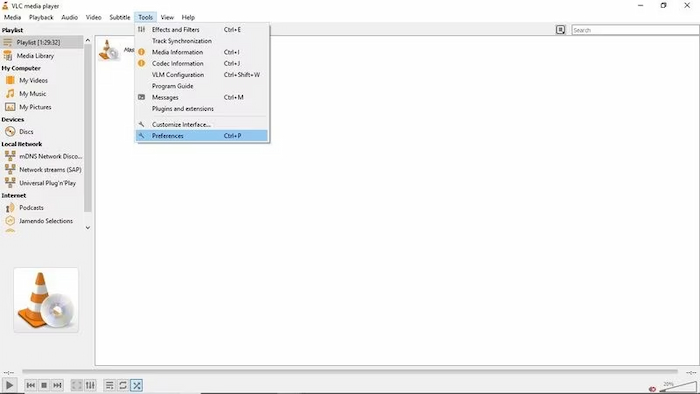
Step 4. Select Audio and check the Enable Audio box.
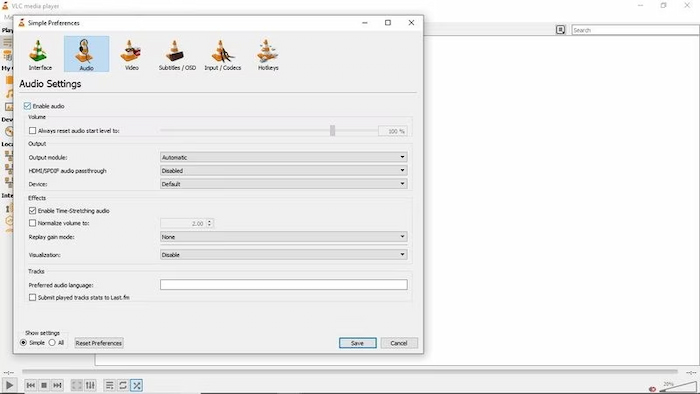
These easy steps will unmute your VLC and turn on the VLC audio, allowing you to listen to your videos.
Method 2: Enable Sound Device
One of the chief reasons of "no sound with vlc media player" problem can plague your VLC Media Player is when the sound device is disabled. The solution to this pervasive issue is to enable sound in your computer settings. The steps that you need to take to do that are quite simple.
Step 1. Go to the Control Panel and open "Hardware and Sound." You can do this by pressing the Windows button and typing Control Panel.
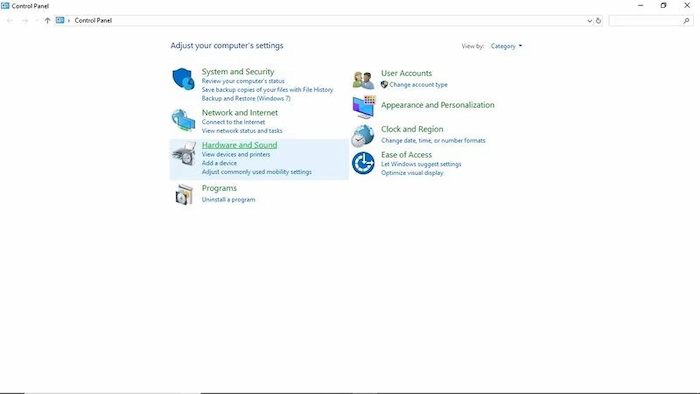
Step 2. You then go to "Sound" and open the dialogue box.
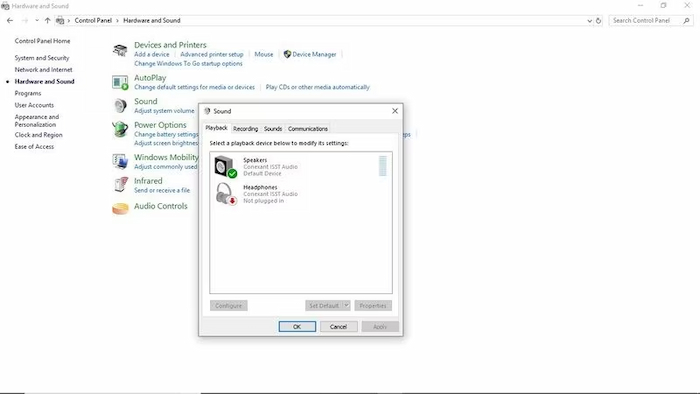
Step 3. Here, you right-click all of the devices, and then you click "enable".
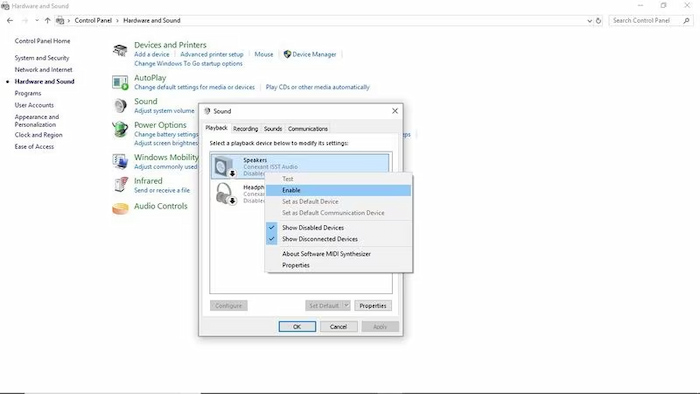
Step 4. Finally, click apply and okay to save the settings you have entered.
This simple process should be able to fix the VLC audio missing issue. However, if this fails to resolve the problem, there is no need to worry. There are still several effective solutions to come.
Method 3: Enable Audio Track
Sometimes VLC defaults to no audio track. To fix:
Step 1. Open your video.
Step 2. Go to the top menu: Audio → Audio Track.
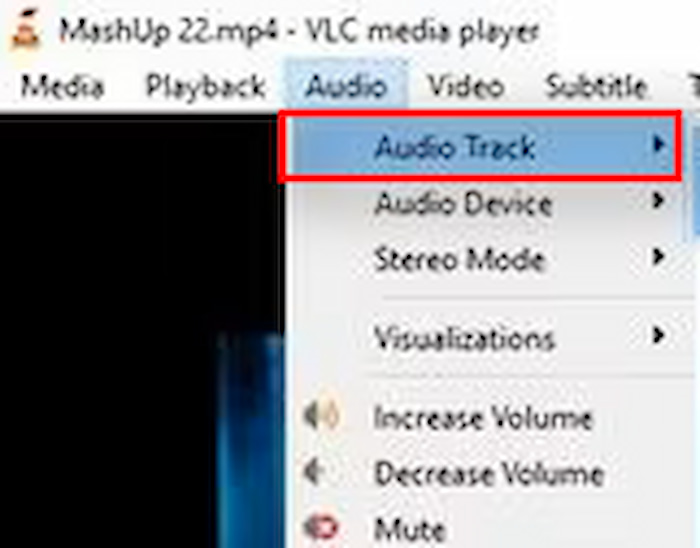
Step 3. Choose the correct track (if more than one is listed).
Step 4. Avoid “Disable.”
Method 4: Reset VLC Audio Preferences
If settings got messed up, restoring defaults helps.
Step 1. Open VLC.
Step 2. Go to Tools → Preferences.
Step 3. At the bottom, click “Reset Preferences.”
Step 4. Restart VLC.
Method 5: Convert the File Format
If VLC struggles with a certain audio codec, converting the file may help.
Step 1. Open VLC → Media → Convert/Save.
Step 2. Add your file, then choose a format like MP4 with AAC audio.
Step 3. Start the conversion and test again.
The above fixes cover most “no sound” issues. But if none of them work, the problem might lie deeper—in the video file itself.
Extension: How to Fix VLC Media Player No Sound Due to a Corrupted Video File
What if you’ve tried all the fixes above and VLC Meida Player still has no sound—but only with one specific video? No matter how much you adjust the parameters, the audio won't play if the file is corrupted. The problem might be a corrupted video file. This happens more often than you’d think, especially with downloaded or old video files. This is where specialized repair tools come in.
VideoSolo Video Repair is an AI-powered software designed to repair corrupted, broken, or unplayable videos. Unlike VLC, which only plays files, VideoSolo can actually fix structural damage to a file, including missing or distorted audio streams.

- The best MP4 joiner repairs both audio and video tracks in damaged files.
- Supports a wide range of formats like MP4, MOV, AVI, MKV, and more.
- Uses sample files for reference, ensuring better accuracy.
- Easy-to-use interface, no technical expertise needed.
Steps
Step 1. Click the section on the left and upload your damaged video.
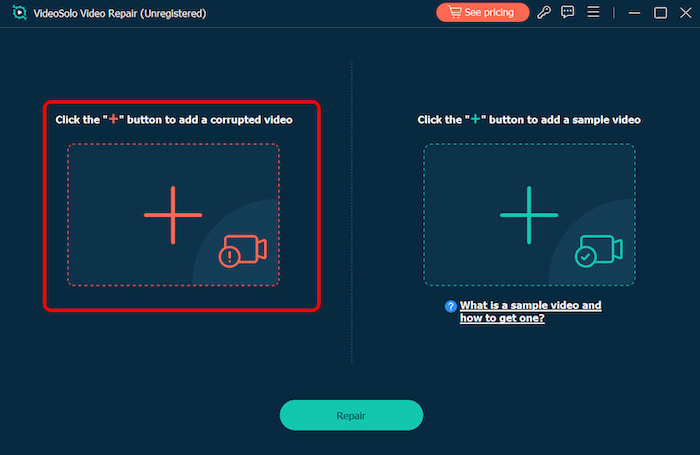
Step 2. Upload a sample video to help the app fix your video. The target video will keep its resolution and framerate the same as the sample video.
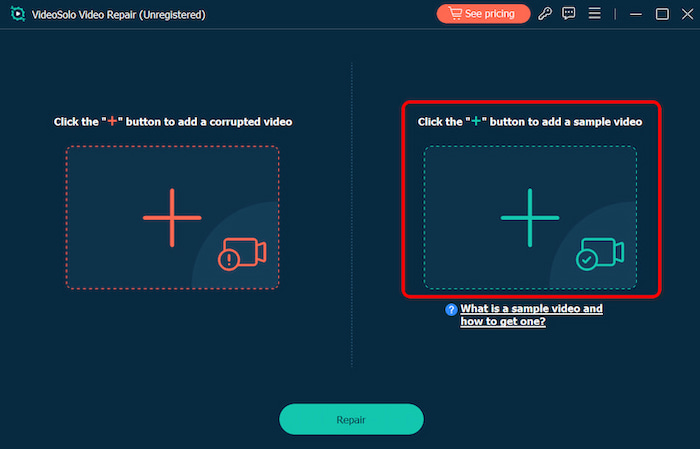
Step 3. Click Repair to start repairing. It can automatically enact restoration to bring the smoothest result.
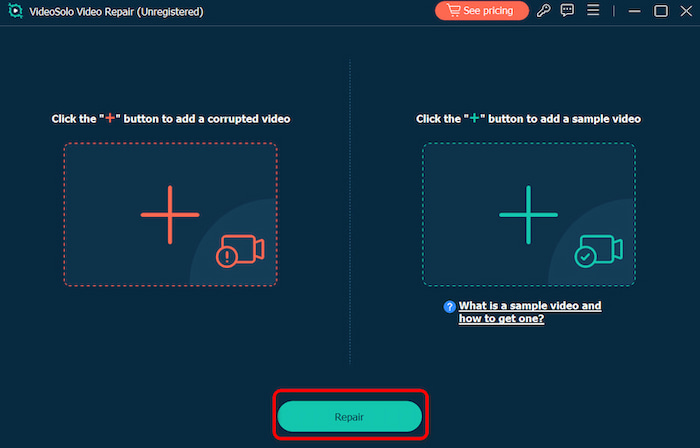
FAQs about VLC Media Player No Sound
Why is there no sound in VLC Media Player when other players work fine?
This usually points to a configuration issue within VLC. Try resetting VLC preferences or changing the audio output device as described above. In this way, the problem can be solved.
Can I use VLC Media Player alone to repair a damaged video?
VLC cannot completely fix damaged files, however it does provide some limited repair options for AVI files. Tools like as VideoSolo Video Repair are suggested for more comprehensive assistance.
How can I determine whether the video file I have is corrupted?
Conclusion
It's unpleasant when VLC Media Player “no sound”, but most of the time there's an easy solution. Start by verifying basic settings including the system audio, enabled tracks, and VLC's volume. Go into preferences, update VLC, or convert the file if none of them work. However, no amount of adjusting will assist if the corrupted file is the source of the issue. In order to let you enjoy your material without difficulty, VideoSolo Video Repair provides an effective method of restoring both audio and video streams. You'll know precisely what to do the next time VLC stops working, whether it's a simple settings change or a comprehensive file repair.
More Reading

Repair your damaged, unplayable videos with multiple mainstream formats like MP4, MOV, 3GP, etc.